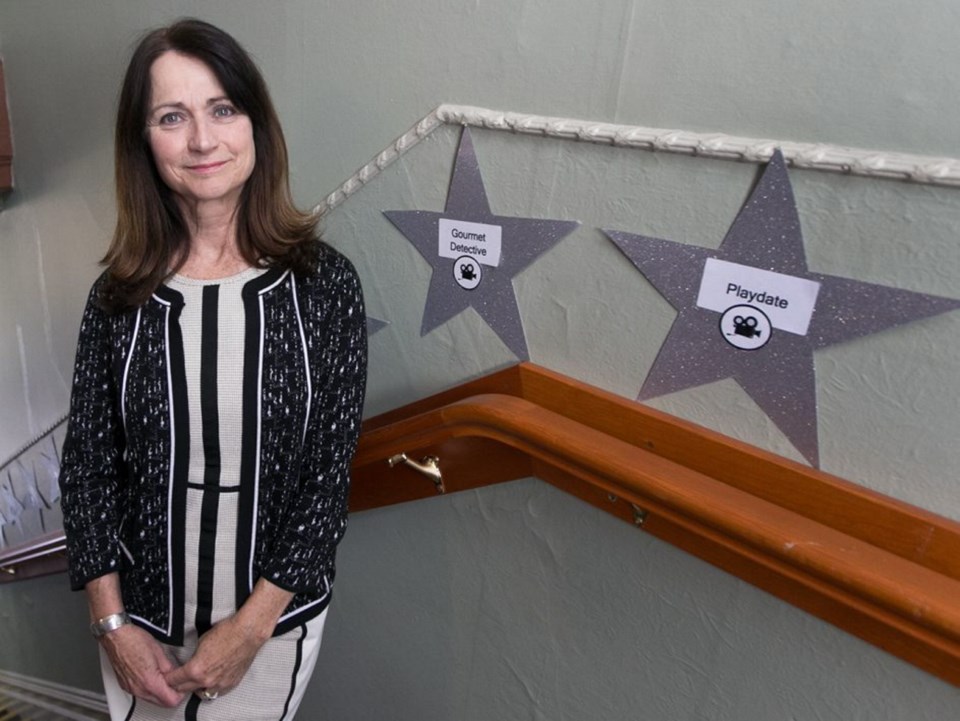Time will tell whether the provincial government’s decision to yell “Cut!” on movie and TV industry tax credits will mean that fewer directors will call “Action!” on B.C. movie sets, stakeholders say.
B.C. Finance Minister Michael de Jong announced Monday that the basic production services tax credit would drop from 33 per cent to 28 per cent when it is implemented on Oct. 1.
The digital animation or visual effects (DAVE) tax credit will be lowered to 16 per cent from 17.5.
B.C.’s tax credits and the low loonie have created a perfect storm of savings for movie producers over the past year, but de Jong said the rates are unsustainable.
The capital region’s film and TV production scene reached a new high in 2015, with nearly $20 million in direct spending from 28 productions.
They include The Boy, Monkey Up, Pupstar, The Girl in the Photographs, Stranger in the House, Signed Sealed Delivered 3, Perfect High and Just in Time for Christmas.
Victoria film commissioner Kathleen Gilbert attributed last year’s dramatic rise to the province’s implementation of an additional six per cent distant location tax credit for producers who shoot here instead of Metro Vancouver.
Gilbert, who lobbied to get the distant location tax credit that had been offered in several other regions, said she wasn’t overly concerned about the tax credit cuts.
“It’s not going to kill us,” said Gilbert, who notes there’s a big difference between living with a five per cent cut to the production services credit, and having been initially denied the six-per-cent distant location credit.
“The difference is that we were the only ones who didn’t get the [distant location] credit,” she said. “As long as everyone is reduced by the same amount, and it’s a level playing field, it’s not a big problem.”
Adjustments were made in consultation with the Motion Picture Production Industry of B.C. and other representatives from the industry that accounted for about $2 billion in productions in B.C. in 2014-15.
De Jong signalled changes in the February budget, noting that the film industry was expected to cost the province about $500 million in tax credits this year.
“I said then, as they expand and grow to half a billion or more, that the government wanted to work with the industry to at least ensure that there was a reasonable limit,” he said. “That’s what we’ve done.”
The changes are expected to reduce the province’s bill to about $400 million — still higher than the average cost of $313 million over the past three years.
Combined with the recent 17 per cent increase in the value of the Canadian dollar, the cuts will make it more expensive to shoot in B.C., said North Saanich-based producer Don Enright.
Enright, whose credits include Private Resort, Next of Kin and Perfect Romance, said there has been an impact since the government floated the idea in February. “Trust me. All those filmmakers who came north for the savings? They’re already looking for the next place.”
Spencer Chandra Herbert, the NDP’s spokesman on film and television issues, said the tax-credit changes make B.C. less competitive than Ontario. “Their tax credits already were more generous than B.C.’s,” he said. “So, will we lose a lot of jobs to Ontario? Maybe not immediately, but if the dollar climbs in value those percentage points are going to matter, and more business will go to Ontario because they are more competitive.”
Chandra Herbert said de Jong should have balanced cuts for the foreign producers by trying to grow the domestic sector. “Creative B.C. needs some more funds to be able to invest in the domestic market so that we’re less prone to the boom-and-bust cycle we’ve seen in the film industry.”
Gilbert admits she’s concerned there hasn’t been more activity here this year, apart from filming of The Gourmet Detective 3 and scenes for the TV movie A Convenient Groom.
“We’re scratching our heads wondering why we’re not screaming-busy because we’ve been very busy in terms of [location] requests,” she said.
There were 20 requests last month alone, and Vancouver Island South Film and Media Commission staff conducted three tours in the past two weeks.
She said she was disappointed that Chesapeake Shores, a new TV series starring Jesse Metcalfe and Victoria’s Meghan Ory, bypassed Victoria.
A pilot was filmed last fall in Steveston, and more episodes will be shot this summer in Qualicum Beach, posing as the U.S. Atlantic coast.
“We worked so hard to try and get that, but at least it stayed on Vancouver Island,” she said. “They really needed that big sandy beach look where houses are level with the beach.”
Obstacles here now include the perception there isn’t enough crew available, and trying to find affordable accomodation as the tourist season heats up, said Gilbert.
— With files from Lindsay Kines



